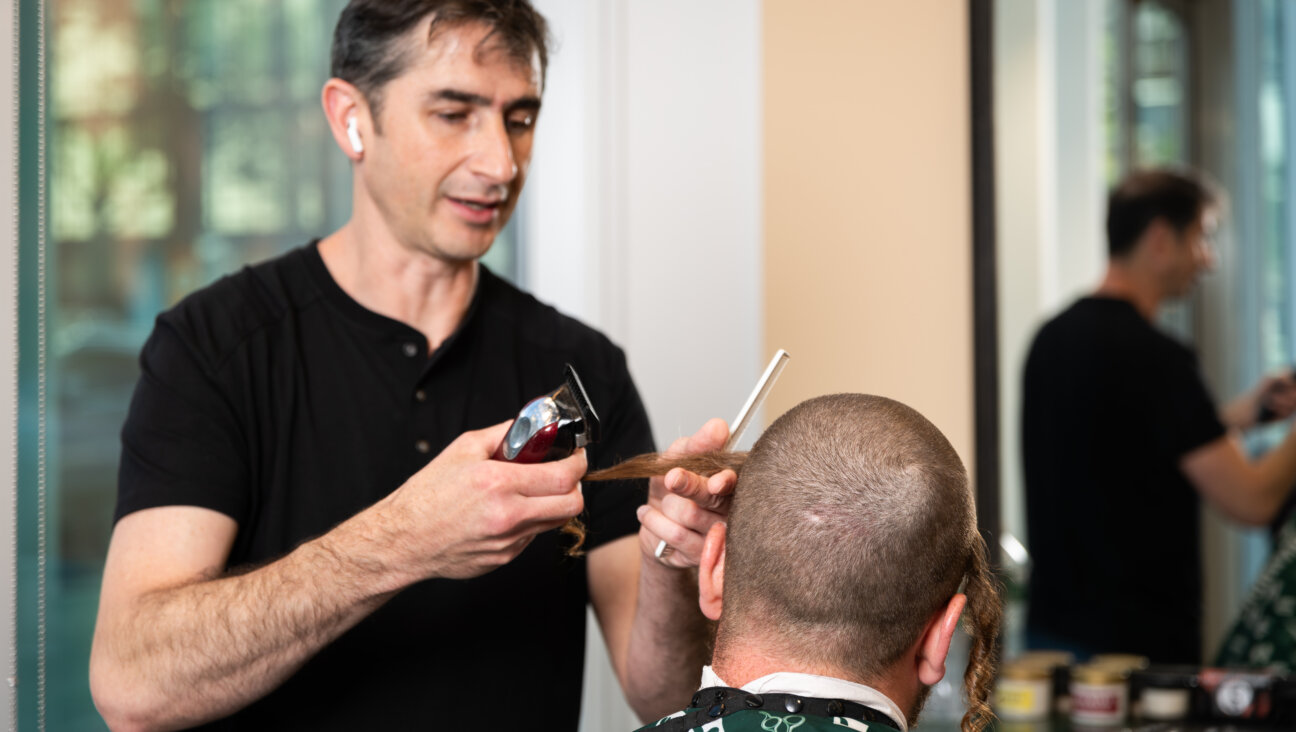Usher Gene Discovered
Scientists have pinpointed the gene mutation responsible for most cases of Usher syndrome type 1 in Ashkenazi Jews. The syndrome is a genetic disorder that causes deafness from birth and progressive blindness beginning before age 10.
The discovery, first reported in The New England Journal of Medicine in April, will allow doctors to more easily and quickly diagnose the syndrome in young children so that patients can receive appropriate treatments from the youngest possible age.
Usher syndrome was first described in 1861 by a Berlin doctor who noticed its symptoms in several Jewish patients. The syndrome, however, can be found in all ethnic groups, and it is no more common in Jews than in any other population.
In many ethnic groups, though, Usher syndrome can be caused by any one of hundreds of mutations on many different genes. This diversity makes it difficult to develop genetic tests to diagnose the syndrome because it is difficult to know which of many mutations a patient might have or whether a patient might have an as-yet-unrecognized one.
Tamar Ben-Yosef, a researcher at the National Institute on Deafness and Other Communication Disorders, had a hunch that Ashkenazi Jews with Usher syndrome might have more genetic commonality than patients from other ethnic groups. She thought that most of them might carry the same founder mutation. A founder mutation is a gene mutation that originates in a founder of a population and then spreads.
“There are many examples of founder mutations causing other diseases, such as Tay-Sachs, in Ashkenazi Jews,” Ben-Yosef said. “So we hypothesized that there might be a similar situation with Usher syndrome. We didn’t have a specific reason to think so — we just thought ‘maybe, so we’ll look into it.’”
Other researchers have identified Usher syndrome founder mutations in Finns and in French Acadians.
Ben-Yosef and her colleagues found what they were looking for. They examined the DNA of 18 Ashkenazi Jewish patients with Usher syndrome type 1 from 12 unrelated families. They found a mutation on a gene called PCDH15, which occurred in 60% of the patients. “So the bottom line is that this mutation causes a large portion of Usher syndrome type 1 in the Ashkenazi Jewish population, although not all of it,” Ben-Yosef said.
The finding is important because, without a genetic test, it is easy for doctors to miss the first signs of Usher syndrome. Children with the syndrome do not begin losing their vision until about age 10, so they are often diagnosed as simply deaf before that. With a DNA test available, Jewish children who are born deaf can easily be tested to see if they have the Usher syndrome mutation.
“Then,” Ben-Yosef said, “there are things you can do for those kids, like give them cochlear implants to help restore their hearing. You might think that’s important for any deaf child, but it’s especially important for someone who will become blind as well.”
William Kimberling, director of the National Center for the Study and Treatment of Usher Syndrome at Boys Town National Research Hospital in Omaha, Neb., agreed with that assessment. “The importance of this is that — aha! — we have something we can test first in Jews to see if they have Usher syndrome,” he said. “It’s a tremendous advance in diagnostics.”
The test may also be added to the roster of genetic screenings offered to Jewish prospective parents. The Chaim Sheba Medical Center, which is affiliated with Tel Aviv University, began offering the screening test for Usher syndrome in mid-July. “It is open to anyone of Ashkenazi origin who can pay for the tests,” said Dr. Moshe Frydman, a geneticist at the hospital. The hospital recommends tests for more common diseases, such as Tay-Sachs, and provides them for free. Screenings for less common diseases, such as Usher syndrome, are offered at a marginal cost. Ben-Yosef said that she hopes many more hospitals will begin offering the screening tests soon.
For now, this research will mainly benefit Ashkenazi Jews. But, Ben-Yosef said, it may someday lead to research that could benefit all Usher syndrome patients, regardless of their ethnicity. It may particularly help those who have different mutations on the PCDH15 gene.
“Anything that you can find out about the gene and the protein will help you understand the underlying mechanism of the syndrome,” Ben-Yosef said. “Eventually, hopefully, this will help other people as well.”



















